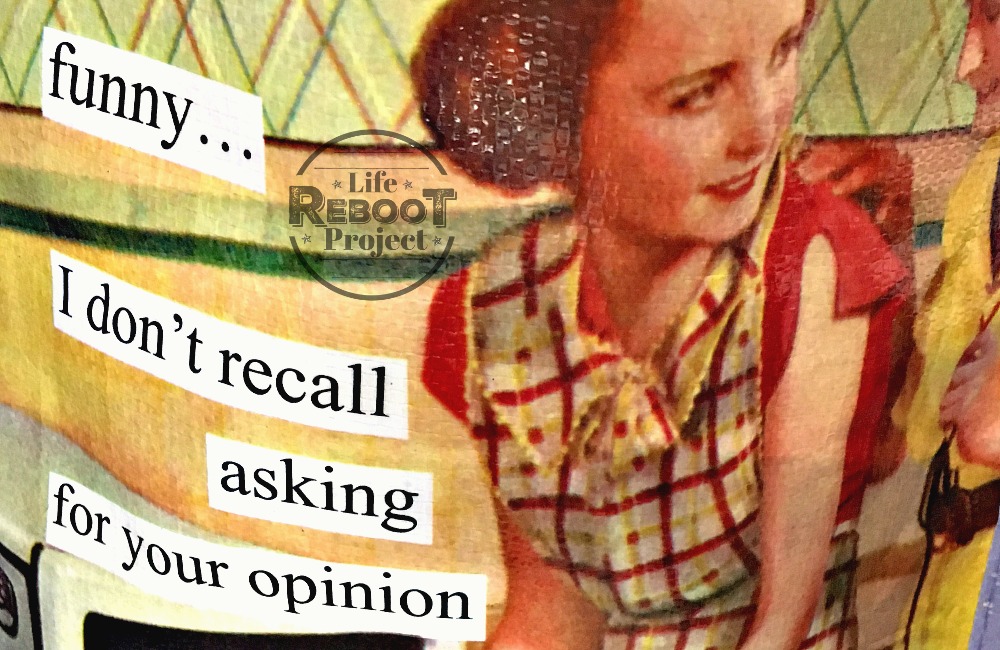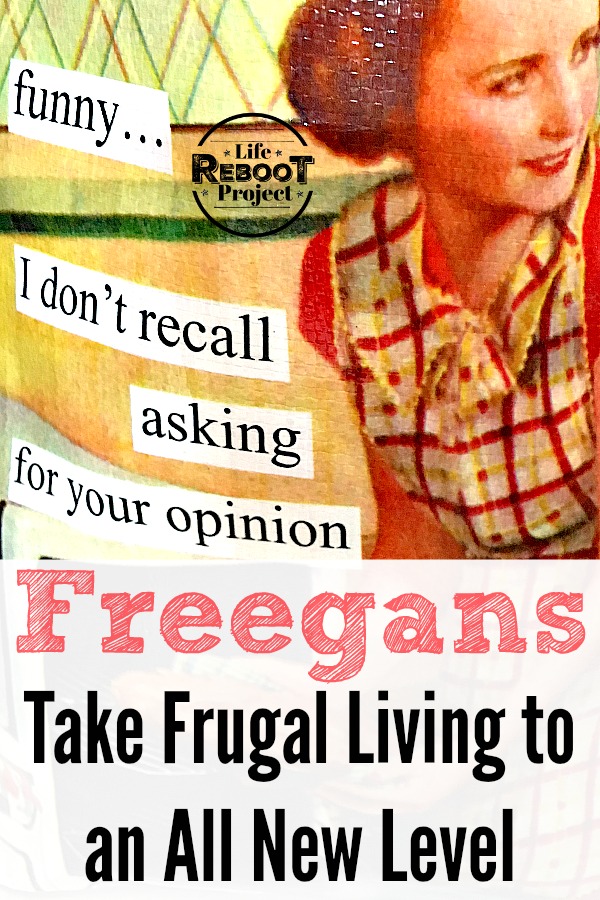
I pop open the Instagram account to see an average-looking guy, who could easily pass for an Ivy League college student in his final years before getting his doctorate. I stop on a video to see what he’s all about. He’s taking me on a tour of all the beautiful bounty he dug out of the garbage for lunch. Is this well-spoken, well-groomed kid in his early twenties homeless?
Nope, he’s a Freegan!
I had heard of dumpster diving before, but I never thought it was a religion, an anarchist cry about consumerism taken to extreme levels. As I talked about Freddy in the opening lines, did it lead you to a sense that he could be as normal as you and I? Of course, taking out the part about diving into the cornucopia trove of trash for his next meal.
As I dug deeper into the subculture of Freegans, I found many astute individuals who get involved more to fruit their political outcry toward extreme consumerism rather than a means of just being cheap.
I see frugality or even mild freeganism as a way toward quicker financial independence and taking back control over our own financial lives.
What are the ideals of the freegan movement?
The radical nature of urban foraging gleams most of the spotlight, but the mindset goes way beyond dumpster diving for food. At the core of their movement, freegans are revolting toward a system of over-consumerism.
Look at the amount of excess we enjoy in some areas of society and others are left with almost nothing. The USDA estimates that 40% of the food we produce we waste. Freegans believe with just a slight shift in our policies and how we think, the world food shortage problem could easily be wiped out.
One of the core philosophies of the dumpster divers is always to share their bounty. The diver always gets first dibs on what he or she wants, but then everyone divides the leftovers amongst the group.
The problem is too few people think this way. Sharing is not just a virtue their parent drilled into them at a young age, but this is a core belief.
The main food shortage problem though doesn’t lie with consumers; it’s deeply twisted into the bureaucracy of our culture and the food system we have developed.
Many of us say we share, we donate to food drives and local pantries as citizens, but once we get in a position of power to make a difference, we walk away pointing the finger at other people or unreasonable policies.
I’m sure many grocery store workers donate food items, but once they get in a position to make a difference in what a grocery store throws out and doesn’t, they back down, fall in line, and go back to pitching thousands of dollars of food in the dumpster.
In his documentary film, “Dive!”, Jeremy Seifert shows us just how much food grocery stores waste in his small local area each day.
Now multiply that small example on a national level, then extend it up even further into the global food production system. Small corrections at the top of the chain could produce significant results down the line.
What kind of people actually dumpster dive?
Upon researching this article, I started to explore the types of people involved with this movement. Were these people all free-spirited hippie types who if it weren’t protesting for the freegan movement would be somewhere protesting something else? I found many people from different kinds of lifestyles all coming to work together.
I found college students, every day 9 to 5ers supporting two to three kids, and I even found highly paid corporate employees who work within the freegan movement as the passion in their life. But this isn’t a story about freeganism at all; this is a love story. This is a story of passion. A passion that runs so deep, that people alter the course of their entire lives just to get involved.
Here is where Madeline Nelson comes into view. Madeline Nelson left her six-figure-a-year corporate job as the Director of Communications with Barnes & Noble in 2005 to be a full-time activist in the freegan movement. Madeline’s beliefs run far deeper than just the efficiency of our food and consumer goods system. Madeline believes in the total abolishment of our capitalist system. She thinks the deletion of capitalism would eliminate many of the problems we face here in America.
Many of her hardcore freegans believe squatting is a right. It’s a crime to leave buildings unoccupied while so many homeless people struggle to meet basic needs like food and shelter. Some have taken over entire vacant buildings and set up small communities within them in a sort of communal living lifestyle.
But, if you dig to the core, you see there is a very flawed mindset to their movement.
Capitalism isn’t the problem. The system is just out of control.
I don’t like waste. I don’t like the fact that there is so much waste yet we have people going without a decent meal. But, eliminating capitalism would not only not fix the waste problem, but would crush not solidify the freegan movement.
Profit drives our entire system. Without profit, there is no motivation to produce. Without the motivation to create, the overage and waste quickly become a shortage and a lack. Freegans would go hungry because there would be no food in the dumpster to procure.
What we need are slight corrections in the system to make sure there is less waste and less excess. Grocery stores are not throwing this food away to be wasteful. They throw this food away to be competitive in capitalism. Think about it this way. Throwing away food creates demand. If everyone could go down to the food bank and pick up food for free, there would be less demand to purchase from stores.
Grocery stores are at a considerable disadvantage if they leave less-than-perfect unappealing food on the shelf. The competition with the most beautiful tomatoes wins. I think the real problem is not capitalism, but government subsidies and tax breaks to food producers to promote overproduction. Large-scale corporate farming has pinched the small family farmer to the point of needing subsidies to survive.
Be safe,
Kevin

